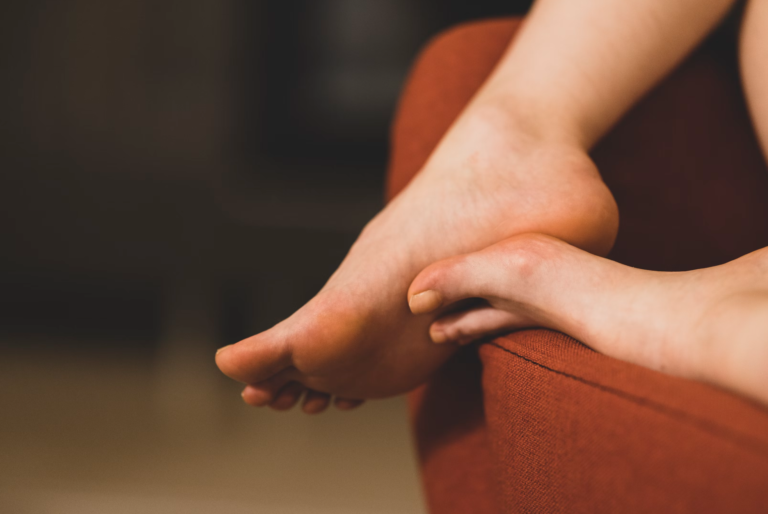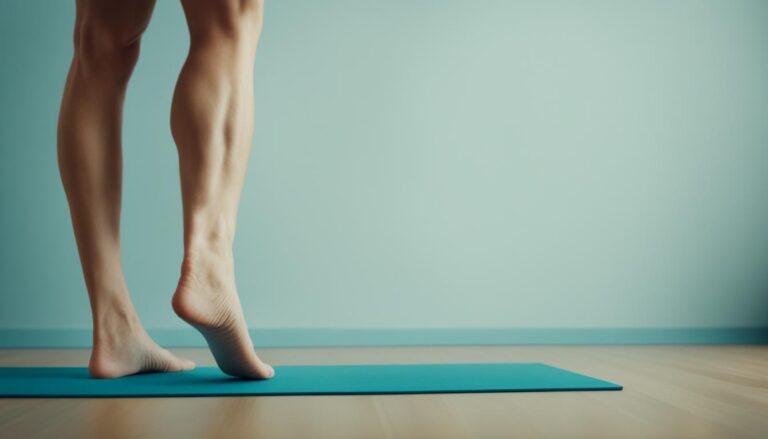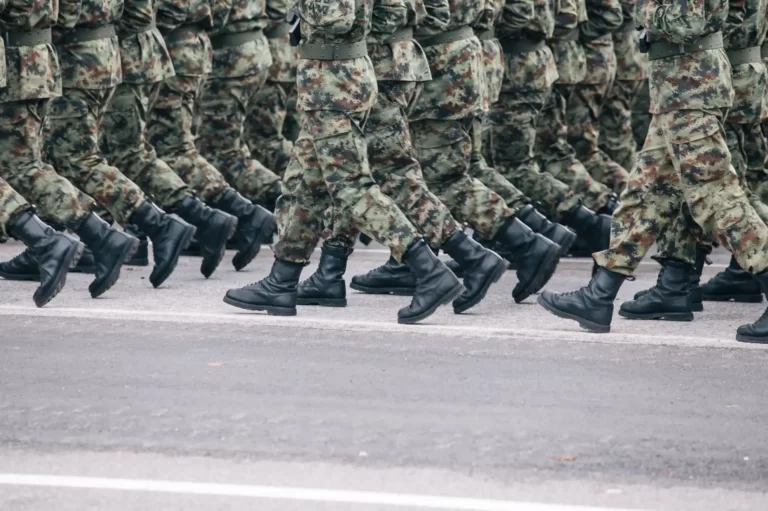Can People with Flat Feet Get Drafted? – Common Questions
Can folks with flat feet join the military? It’s a big question, especially for those with this very common issue. In this piece, we’ll look at how having flat feet might impact your ability to serve. We’ll cover what the rules say about physical exams and if you can get special arrangements. By the end, you should understand how flat feet can influence your military service dreams. And what you might be able to do about it.
Key Takeaways
- Flat feet, also known as pes planus, is a common condition that can affect an individual’s physical abilities and potentially impact their military draft eligibility.
- The military’s physical and medical requirements for conscription take into account various medical conditions, including flat feet, and may result in disqualification or the need for accommodations.
- Individuals with flat feet may be eligible for a deferment or postponement of their military draft obligations, depending on the severity of their condition and the specific criteria for exemption.
- Seeking medical advice from healthcare professionals is crucial for individuals with flat feet who are concerned about their draft eligibility, as they can provide guidance on treatment options and the potential impact on physical abilities.
- There are several myths and misconceptions surrounding flat feet and the military draft, which we will address to provide accurate information and clarity on this topic.
Understanding Flat Feet and Military Eligibility
Flat feet is a condition where the arches of the feet collapse. This makes the entire sole touch the ground. It affects balance, stability, and physical abilities, important for military service.
What Are Flat Feet?
Flat feet means the feet lack their normal arches, flat on the bottom. It may be from birth or develop due to age, weight, or injury. People with flat feet find running, jumping, or carrying things hard and painful.
How Do Flat Feet Affect Physical Activity?
Flat feet can greatly affect what you can do, especially in the military. It makes balancing, stabilizing, and carrying things harder. This affects tasks like basic training, combat, and other active duties.
It also raises the chance of foot and leg injuries like plantar fasciitis. These injuries not only, hurt performance but also health. This could make someone unfit for military duty.
Can People with Flat Feet Get Drafted?
Whether people with flat feet can join the military is a complex topic. The military reviews medical conditions like flat feet for the draft process. We’ll look into how flat feet might affect a person’s chance of being drafted.
People with flat feet have a condition called pes planus. This means their foot arches are low or absent, and their whole foot touches the ground. It might affect how they balance and move, skills key for military roles. The military checks if recruits can meet these physical standards safely and effectively.
Having flat feet doesn’t always mean you can’t be drafted. If your flat feet don’t stop you from doing military tasks, you might still be able to join. The military will look closely at the impact of flat feet on your physical abilities.
Sometimes, people with flat feet can get special help or exceptions. These could let them join the military even with flat feet. What’s allowed varies by military policy and the person’s health situation.
Things change, so keeping up with the military’s flat feet rules is smart. By talking to doctors or checking with the Selective Service System, you can stay informed. They can help you understand your chances in the draft.
Understanding how flat feet and the draft intersect is important for those affected. With the right information, people with flat feet can wisely consider their military service opportunities.
Military Draft Eligibility and Medical Exemptions
Understanding how flat feet affect draft eligibility requires a look into the physical and medical standards for joining the military. The selection process makes sure people can effectively serve. It checks for health issues like flat feet, which might affect someone’s ability to meet these standards.
Physical Requirements for Conscription
The military has many physical requirements for those who want to join. These include being a certain height and weight, as well as needing to be in good shape. For flat feet, they look at how serious it is and if it might stop someone from doing physical tasks in the military. Those with flat feet could need extra tests or doctor’s notes to show they can still serve.
Medical Conditions That May Disqualify from Draft
The military also looks at health conditions that might prevent someone from serving. While having flat feet isn’t always a problem, if it causes a lot of pain or makes it hard to move, it could lead to being unfit for duty. The goal is to have all recruits able to do their job safely and effectively.
It’s good to know that how the military views flat feet and draftees’ eligibility can change. It depends on the situation and how bad the flat feet are. If you’re worried about being drafted because of flat feet, talking to a doctor and the Selective Service is a smart step. They can help you understand what might be possible for you.
Flat Feet and Selective Service Registration
The Selective Service System keeps a list of people who might join the military. It’s crucial to know how this system works, especially for those with flat feet. They may wonder how their condition affects being drafted.
Understanding the Selective Service System
The Selective Service System is set up by the government. It registers all male U.S. citizens and male immigrants living in the U.S. between 18 and 25. This list is for if there’s a need for a military draft, something not done since the Vietnam War. Even though a draft happening again is unlikely, knowing the rules is key for people with flat feet. They should be aware of how their condition could matter.
Registering with Flat Feet
Having flat feet doesn’t mean you can skip registering with the Selective Service. Everyone, including those with flat feet, must register within 30 days of turning 18. This is true regardless of your health status. When you sign up, you can mention any health issues, like flat feet. This detail gets stored in the Selective Service’s records.
If you don’t register, there can be big problems. You might not get federal student aid, job training, or federal jobs. It’s a must-do for people with flat feet to register and give the right info about their health.
Impact of Flat Feet on Military Service
The military looks closely at those with flat feet. It might affect how well they can serve. Flat feet don’t always stop someone from joining, but it’s something they will check.
Can You Serve with Flat Feet?
People with flat feet might still join the military. But what they can do in the military might change. Each person’s case is looked at individually. This includes how serious their flat feet are and what they want to do. Their health, how fit they are, and the job they want are all considered.
Accommodations and Restrictions for Flat Feet
If someone is fit to serve but has flat feet, there are ways to help. They might get special training or equipment to make things easier. This can mean getting custom orthotic inserts, special shoes, or extra therapy. However, there might still be some limits on what activities they can do or what their job in the military will be.
The military wants to help everyone work effectively and safely. They consider special needs, like with flat feet. Knowing about the help available can help people with flat feet figure out their military options better.
Draft Deferment Due to Flat Feet
People with flat feet worry about joining the military. They might find ways to delay or avoid the draft. This means understanding how to qualify for deferment, be it temporary or permanent, due to flat feet.
Qualifying for Deferment
Flat feet can prevent someone from doing certain military tasks. If your flat feet are serious enough, you might not have to serve. This is if they make it hard for you to keep up physically.
You must have a doctor explain how bad your flat feet are. They need to show how your feet limit what you can do. The military then decides if you should be excused because of flat feet disqualification.
Temporary vs. Permanent Deferment
Your flat feet will be checked to see if they can get better. If they might with time or treatment, you could get a temporary break from the draft. This gives you a chance to maybe join up later.
If your flat feet are really serious and won’t ever be fixed, you could get out of the draft for good. A chronic problem that lasts your lifetime ends the draft concern. You won’t have to serve if they find out your flat feet are a draft deferment due to flat feet issue.
Historical Perspectives on Flat Feet and the Draft
Over time, the military has changed how it views flat feet and draft eligibility. Looking at how this was handled in World War I and II gives us useful historical background. It helps us see the shift in thoughts and rules about how flat feet affect military service.
Flat Feet in World War I and II
In World War I, the U.S. military wasn’t keen on soldiers with flat feet. They thought flat feet would slow down or exhaust soldiers in battle. Because of this, many were turned away or asked to leave.
As World War I continued, and more soldiers were needed, things changed. The military started to be more open-minded about flat feet. They found that this condition didn’t stop everyone from doing their best in service.
World War II saw a big change in how flat feet were seen. The military knew it needed all the help it could get. So, they started letting in folks with flat feet if they could still perform their duties well. They realized that flat feet didn’t always mean someone was less capable.
Now, the military is in a phase where it tries to be both fair and effective. It looks at each case with flat feet individually. How severe the flat feet is and the person’s overall physical health are considered.
Seeking Medical Advice for Flat Feet
If you have flat feet and worry about military service with flat feet or flat feet disqualification, it’s key to see a doctor. A podiatrist or orthopedist can help. They’ll look at your flat feet closely. They’ll suggest treatment options for flat feet that can make you feel better. And might help with medical exemptions for draft too.
Consulting with Healthcare Professionals
Seeing a healthcare pro is crucial. They will do a full check-up on your flat feet. They’ll tell you how bad it is. And what that means for activities, like joining the military. This info is important. It helps you know more about flat feet disqualification and what to do if you want to join the military.
Treatment Options for Flat Feet
The treatment you get depends on how bad your flat feet are. Your doctor might suggest orthotics or arch supports. Or they could recommend physical therapy. Sometimes, surgery is needed. These steps can make flat feet less of a problem. And might help with military draft eligibility.
Getting advice from professionals is key. Working with your healthcare team is very important. They will give you a detailed look at your condition. Together, you can find ways to deal with any problems. Especially regarding flat feet disqualification and medical exemptions for draft.
Myths and Misconceptions About Flat Feet and the Draft
There are a lot of myths about flat feet and joining the military. Some think flat feet means automatic disqualification from the draft. But it’s not as simple as that. The military looks at how severe someone’s flat feet are before making a decision.
Many also believe that having flat feet means you can’t join the military. This isn’t always true. While some may face restrictions or need special help, many with flat feet can still serve well. It’s about understanding what’s required and working with doctors and the military.
It depends on other things too, like your health and what the military needs. If your flat feet don’t affect you much, you might still be eligible. Things like how serious the flat feet are and if there are treatments available also matter.
Addressing these myths is key. It helps people with flat feet know their chances better. Plus, knowing the facts makes it easier to see how military service might be possible for them.









